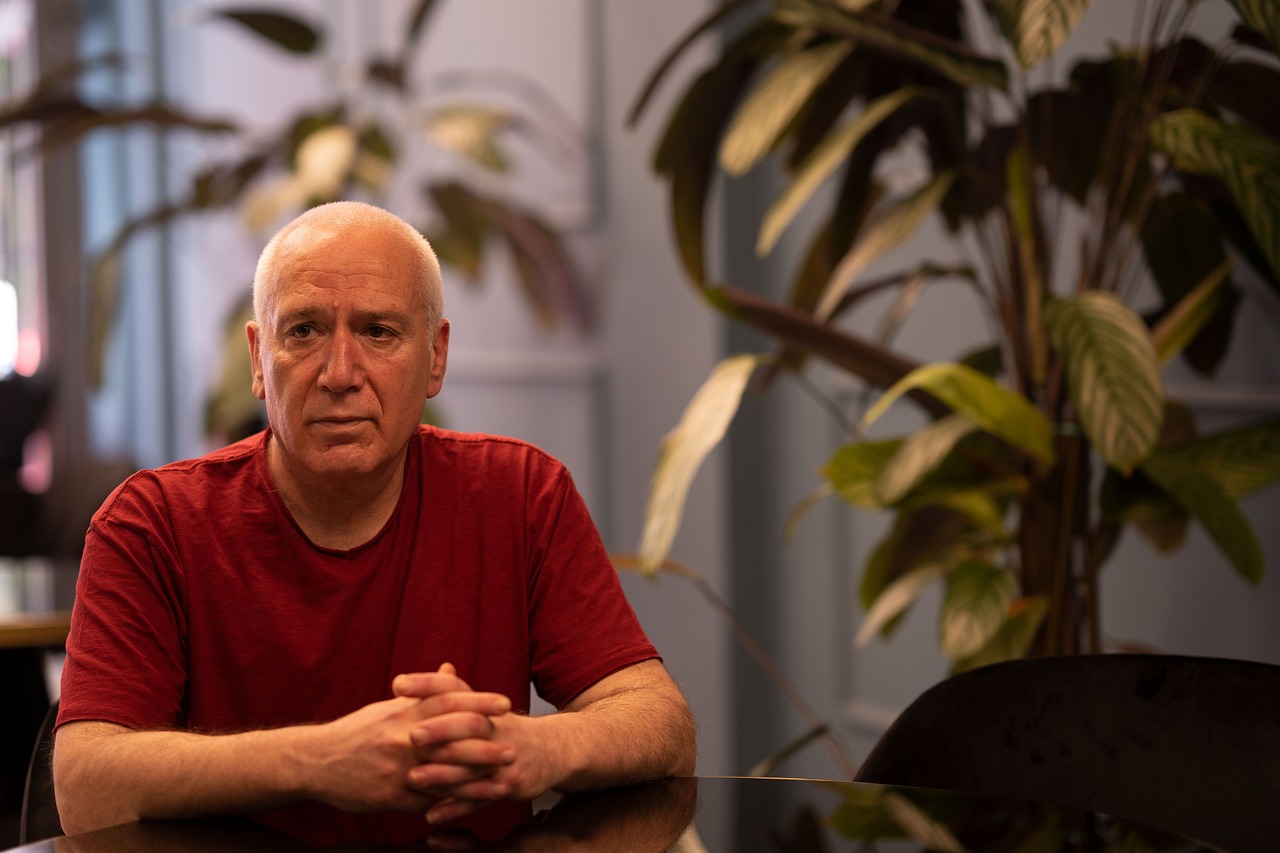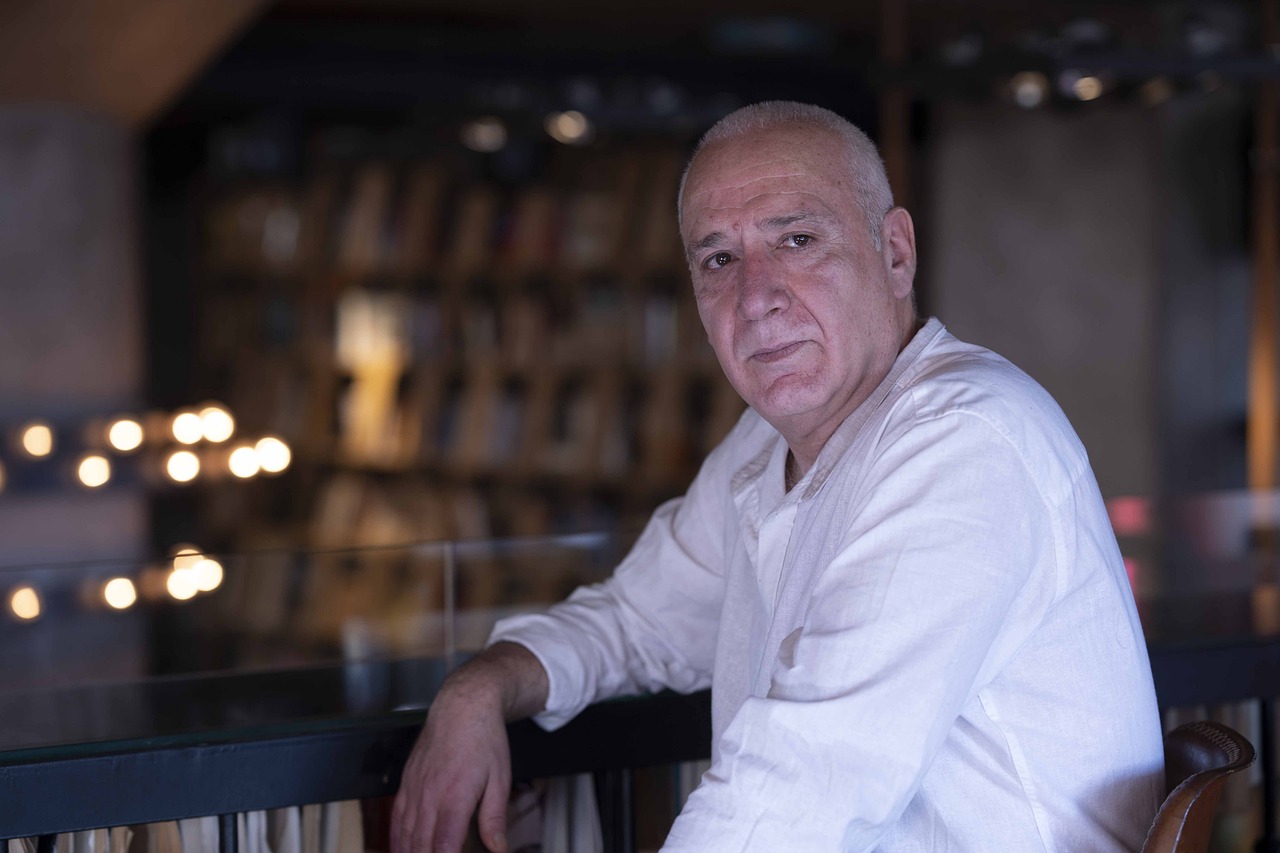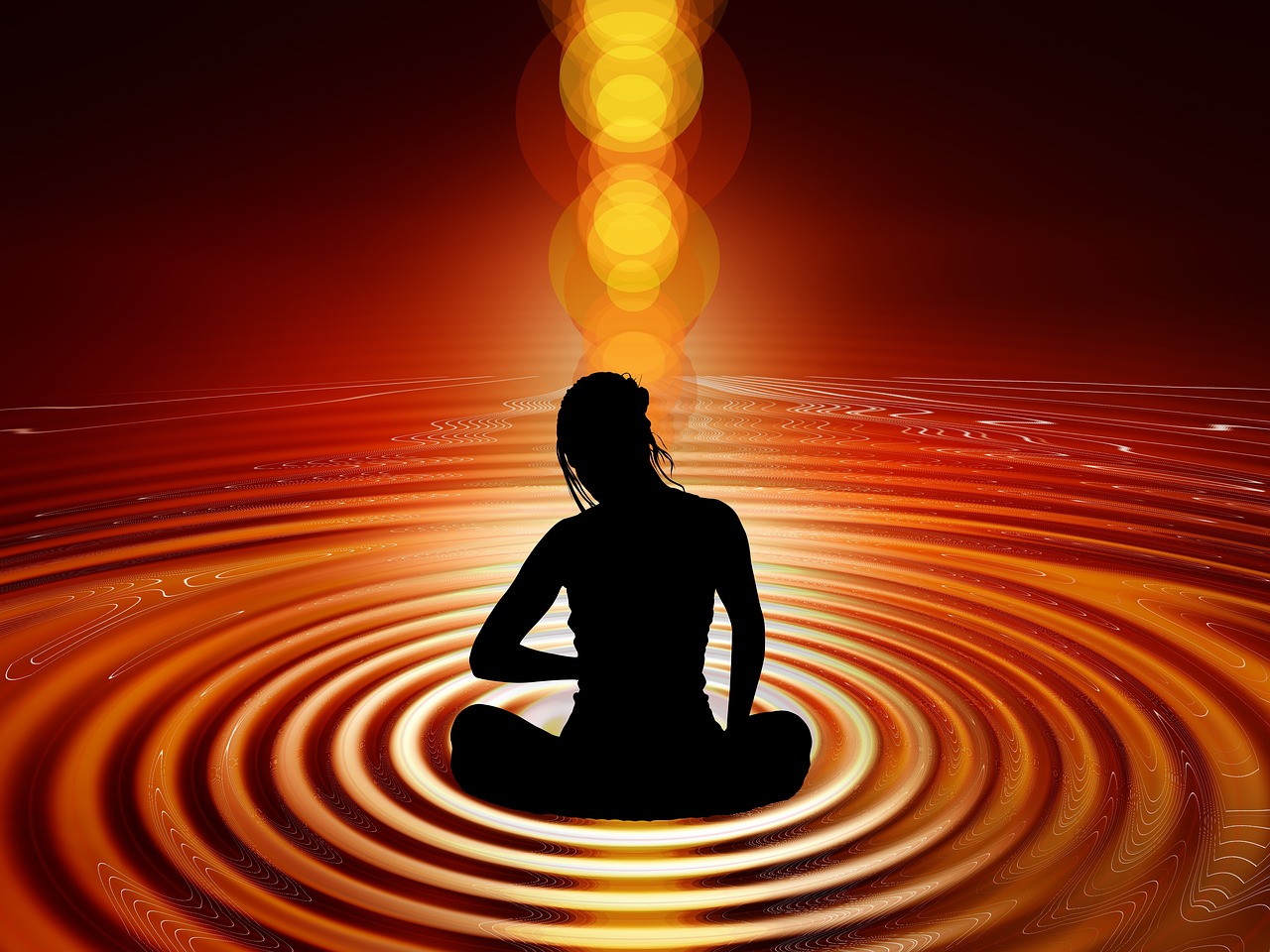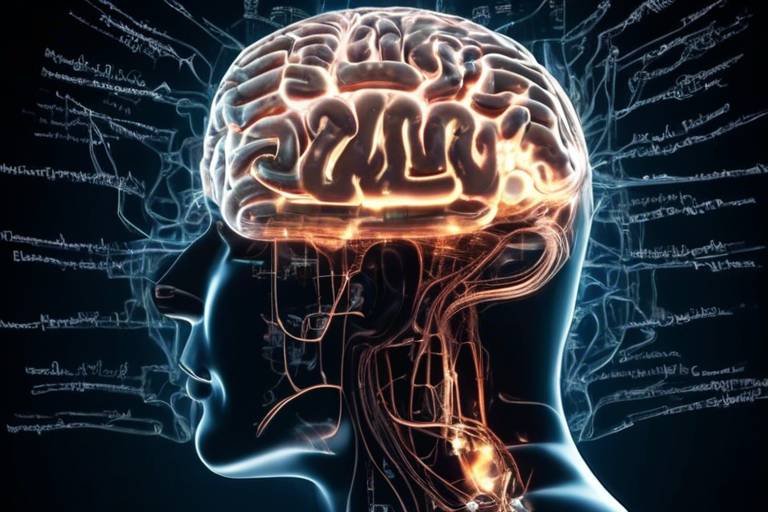Consciousness - Its Relationship with Life and Death
Consciousness is one of the most profound and enigmatic aspects of the human experience. It shapes our perceptions, influences our actions, and ultimately defines our existence. But what exactly is consciousness? Is it merely a byproduct of brain activity, or does it hold a deeper significance in the grand tapestry of life and death? As we embark on this exploration, we will delve into various perspectives—philosophical, scientific, and spiritual—that illuminate our understanding of consciousness and its intricate relationship with life and mortality.
At its core, consciousness can be described as the state of being aware of and able to think about one's own existence, sensations, thoughts, and surroundings. This awareness is not just a passive experience; it actively shapes our identities and influences our interactions with the world. Imagine consciousness as a lens through which we view reality—a lens that can be distorted or clarified depending on our experiences and mindset.
Throughout history, thinkers have grappled with questions surrounding consciousness and its implications for life and death. For instance, how does consciousness affect our understanding of mortality? Does it end with our physical existence, or is there a continuation beyond this life? These questions are not just philosophical musings; they hold profound implications for how we live our lives and how we prepare for the inevitable end.
As we navigate this complex landscape, we will examine the scientific underpinnings of consciousness, exploring how brain activity correlates with our subjective experiences. We will also consider various theories that attempt to explain the mind-body connection, such as dualism and physicalism, and how these theories impact our understanding of life and the potential for an afterlife.
Moreover, cultural perspectives on consciousness will be highlighted, showcasing how different societies interpret its significance and purpose in the context of life and death. From Eastern philosophies that embrace the cyclical nature of existence to Western ideologies that often view consciousness as a linear journey, the diversity of thought surrounding consciousness is as rich as it is complex.
Ultimately, consciousness is not just an abstract concept; it is a vital component of our human experience that influences our decisions, shapes our identities, and frames our understanding of existence. As we delve deeper into this exploration, we will uncover how consciousness plays a pivotal role in our lives and how it prepares us for the inevitable transition that comes with death.
- What is consciousness? - Consciousness is the state of being aware of and able to think about one's own existence, sensations, thoughts, and surroundings.
- Does consciousness continue after death? - This is a debated topic, with various philosophical and spiritual perspectives offering different interpretations.
- How does consciousness affect our daily lives? - Consciousness shapes our identities, influences our decisions, and affects how we interact with the world around us.
- What are some theories of consciousness? - Theories include dualism, physicalism, and emergent properties of consciousness, each offering unique insights into the mind-body connection.

The Nature of Consciousness
Understanding consciousness begins with defining its essence, a task that has puzzled philosophers, scientists, and spiritual thinkers for centuries. At its core, consciousness can be described as our awareness of ourselves and our surroundings. It encompasses not just the ability to perceive and respond to the world, but also the rich tapestry of thoughts, emotions, and experiences that shape our reality. Think of consciousness as a vast ocean—deep, mysterious, and full of currents that influence the surface of our lives.
Various theories attempt to untangle the complex web of consciousness. Some argue that it is a fundamental aspect of existence, while others see it as a byproduct of evolutionary processes. For instance, dualism posits that consciousness exists separately from the physical body, suggesting a spiritual dimension to our existence. On the other hand, physicalism asserts that all conscious experiences arise from brain activity, emphasizing the biological basis of our thoughts and feelings. This debate is not just academic; it has profound implications for how we view life, death, and everything in between.
One fascinating perspective is that of emergent properties. This theory suggests that consciousness arises from complex systems, particularly the intricate networks of neurons in our brains. Just as a flock of birds moves in unison, creating patterns that are not evident in individual birds, our conscious experience emerges from the interactions of countless neural processes. This view highlights the importance of social and environmental factors—our interactions with others and our surroundings shape our conscious experience throughout life.
Furthermore, cultural perspectives on consciousness add another layer of depth to our understanding. Different societies have unique interpretations of what consciousness means, its purpose, and its significance in the context of life and death. For example, some cultures view consciousness as a journey of the soul, while others see it as an integral part of the human experience. These diverse beliefs reflect the rich tapestry of human thought and the myriad ways we seek to understand our existence.
In summary, the nature of consciousness is a multifaceted phenomenon that intertwines philosophy, science, and culture. It invites us to explore not only who we are but also the deeper questions of existence and the afterlife. As we delve further into this exploration, we begin to see how consciousness shapes our lives and influences our perceptions of mortality.
- What is consciousness? Consciousness is our awareness of ourselves and our environment, encompassing thoughts, emotions, and experiences.
- What are the main theories of consciousness? The main theories include dualism, physicalism, and emergent properties, each offering unique insights into the nature of consciousness.
- How does culture influence our understanding of consciousness? Different cultures have varied interpretations of consciousness, affecting how they perceive its significance in life and death.

Consciousness and the Brain
When we dive into the depths of consciousness, we inevitably encounter the brain, that intricate organ responsible for our thoughts, emotions, and perceptions. Understanding the relationship between consciousness and the brain is akin to solving a complex puzzle where each piece represents a different aspect of our cognitive experience. The brain is not just a biological machine; it is the very foundation of our subjective experience, shaping how we perceive reality and interact with the world around us.
Recent advancements in neuroscience have shed light on how neural processes contribute to our awareness. For instance, brain imaging technologies, like fMRI and EEG, allow scientists to observe brain activity in real-time, revealing which areas light up during various conscious experiences. This has led to significant insights, such as:
- Localization of Function: Different regions of the brain are associated with distinct functions. For example, the occipital lobe is primarily responsible for visual processing, while the prefrontal cortex is crucial for decision-making and social behavior.
- Neural Correlates of Consciousness: Researchers are actively investigating which neural patterns correlate with conscious experience, aiming to identify the 'neural correlates of consciousness' (NCC).
- Brain Plasticity: The brain's ability to reorganize itself by forming new neural connections is vital for learning and adapting, demonstrating that consciousness is not static but evolves with our experiences.
One of the most intriguing aspects of consciousness is how it emerges from the brain's complex networks. Some theorists argue that consciousness is an emergent property, arising from the interactions of simpler processes within the brain. This perspective suggests that consciousness is not merely a byproduct of brain activity but a dynamic process shaped by various factors, including our environment and social interactions.
As we explore the interplay between consciousness and the brain, we encounter various theories that attempt to explain this relationship. Two prominent theories are dualism and physicalism. Dualism posits that the mind and body are separate entities, suggesting that consciousness exists independently of the physical brain. This raises questions about the nature of existence and the possibility of an afterlife. On the other hand, physicalism asserts that consciousness arises solely from physical processes within the brain, arguing that our thoughts and experiences are fundamentally tied to neural activity.
The debate between dualism and physicalism is pivotal in understanding life and the concept of an afterlife. While dualists believe in a non-material essence of consciousness, physicalists argue that everything, including consciousness, can be explained through biological processes. This ongoing discussion invites us to ponder profound questions about our existence and what happens to our consciousness after death.
Another fascinating angle is the idea of emergent properties of consciousness. Some theorists suggest that consciousness emerges from complex systems, emphasizing the role of social and environmental factors in shaping our conscious experience. This perspective highlights that our interactions with others and our surroundings significantly influence our awareness and understanding of reality.
In summary, the relationship between consciousness and the brain is a multifaceted and evolving field of study. As we continue to unravel the mysteries of consciousness, we gain a deeper understanding of what it means to be alive and aware. This exploration not only enhances our understanding of our own existence but also invites us to reflect on the broader implications of consciousness in the context of life and death.
- What is consciousness? Consciousness refers to the state of being aware of and able to think about one's own existence, thoughts, and surroundings.
- How does the brain contribute to consciousness? The brain processes sensory information, emotions, and thoughts, creating our conscious experience through complex neural networks.
- What are the main theories of consciousness? Major theories include dualism, which posits a separation between mind and body, and physicalism, which asserts that consciousness arises from physical processes in the brain.
- Can consciousness exist without the brain? This is a contentious topic. Dualists argue that consciousness can exist independently of the brain, while physicalists believe that consciousness is intrinsically linked to brain activity.

Theories of Mind
When it comes to understanding consciousness, the play a pivotal role in shaping our insights into the intricate relationship between our mental states and the physical world. These theories attempt to unravel the complex web of how our minds operate, how they relate to our bodies, and what this means for our existence as conscious beings. At the heart of this exploration are three primary theories: dualism, physicalism, and idealism. Each of these perspectives offers a unique lens through which we can examine our consciousness and its implications for life and death.
Dualism posits a clear separation between the mind and the body. This theory, famously championed by philosopher René Descartes, suggests that our mental states are fundamentally different from our physical states. In essence, while our bodies are made of matter and subject to the laws of physics, our minds are non-material and operate in a realm that transcends physicality. This dualistic perspective raises profound questions about the nature of consciousness and its potential to exist independently of the body, particularly when considering the concept of an afterlife.
On the flip side, physicalism argues that consciousness is entirely a product of physical processes. According to this view, all mental states and experiences can be explained through the workings of the brain and its neural connections. This perspective aligns closely with modern scientific understanding, as it emphasizes that our thoughts, feelings, and perceptions are rooted in biological functions. However, this view also prompts a challenging inquiry: if consciousness is merely a byproduct of physical processes, what happens to it when the body ceases to function?
Then there’s idealism, a theory that flips the script by positing that the mind is the primary reality, and the physical world is a manifestation of mental processes. This philosophical stance suggests that consciousness shapes our reality, rather than the other way around. It leads us to ponder the implications of our thoughts and beliefs in creating our experiences. If our consciousness is indeed the foundation of reality, can we influence our experiences of life and death through our mental perceptions?
Each of these theories contributes to a broader understanding of consciousness and its relationship with existence. To further illustrate these concepts, let’s summarize their key characteristics in the following table:
| Theory | Key Characteristics | Implications for Life and Death |
|---|---|---|
| Dualism | Mind and body are separate; consciousness exists independently. | Possibility of an afterlife; consciousness may continue after death. |
| Physicalism | Consciousness arises from brain activity; everything is physical. | Consciousness ceases to exist when the body dies. |
| Idealism | The mind shapes reality; physical existence is secondary. | Consciousness may transcend physical death, influencing experiences beyond. |
As we delve deeper into these theories, it's crucial to recognize that they are not mutually exclusive. Many thinkers advocate for a more integrated approach, suggesting that consciousness may exhibit characteristics of all three theories depending on the context. This multifaceted understanding can enrich our exploration of life, death, and everything in between, prompting us to question not only what it means to be conscious but also how we can navigate our existence with this awareness.
In conclusion, the theories of mind offer a fascinating glimpse into the nature of consciousness. They challenge us to think critically about our experiences and the very essence of our being. As we continue our journey through the realms of consciousness, we must remain open to the myriad possibilities that lie ahead, including the profound implications for our understanding of life and death.
- What is dualism? Dualism is the theory that the mind and body are two distinct entities that interact but are fundamentally different in nature.
- How does physicalism explain consciousness? Physicalism posits that all mental states are the result of physical processes in the brain, suggesting that consciousness arises solely from neural activity.
- Can consciousness exist after death according to these theories? Dualism supports the idea of an afterlife, while physicalism generally argues that consciousness ceases with the body. Idealism may suggest continuity beyond physical existence.

Dualism vs. Physicalism
The debate between dualism and physicalism is one of the most fascinating discussions in the field of philosophy, especially when it comes to understanding consciousness and its relationship with life and death. At its core, dualism posits that the mind and body are distinct entities. This perspective suggests that our consciousness exists separately from our physical form, implying that there is something more to our existence than mere biological processes. Think of it like a computer and its software: while the hardware (the computer) and software (the programs) interact, they are fundamentally different in nature. Dualists argue that consciousness cannot be entirely explained by physical processes alone, hinting at the existence of a soul or a non-material aspect of human beings.
On the other hand, physicalism takes a more scientific approach, asserting that everything about consciousness can be understood through physical processes in the brain. According to this view, our thoughts, emotions, and experiences are all products of neural activity. Imagine a complex orchestra where every musician (neuron) plays a specific role in creating a symphony (conscious experience). Physicalists argue that by studying the brain, we can uncover the mysteries of consciousness, suggesting that there is no need to invoke a separate realm of existence. This leads to the fascinating implication that our consciousness is intricately tied to our biological life, and once our physical body ceases to function, so too does our consciousness.
The implications of these two perspectives are profound, especially when considering the concept of an afterlife. Dualists often find comfort in the idea that consciousness continues beyond death, while physicalists may argue that death signifies the end of consciousness as we know it. To illustrate this, let’s look at a comparison table:
| Aspect | Dualism | Physicalism |
|---|---|---|
| Definition | Mental and physical are distinct. | Consciousness arises from physical processes. |
| Afterlife | Possibility of existence beyond death. | Consciousness ends with physical death. |
| Key Thinkers | René Descartes, Plato | Daniel Dennett, Patricia Churchland |
This ongoing debate not only shapes our understanding of what it means to be conscious but also influences our beliefs about life, death, and what may lie beyond. Whether one leans towards the idea that we are more than just our physical selves or embraces a strictly materialistic view, the exploration of consciousness remains a captivating journey that invites us to question our very existence.

Emergent Properties of Consciousness
When we delve into the concept of consciousness, one of the most intriguing ideas that arise is the notion of its emergent properties. This perspective suggests that consciousness is not merely a byproduct of individual components, like neurons firing in isolation, but rather a complex phenomenon that arises from the intricate interactions of various systems. Think of it like a symphony orchestra: each musician plays their part, but it is only when they come together that the magic of music is created. Similarly, consciousness emerges from the collaboration of numerous cognitive processes, social interactions, and environmental influences.
The emergent properties of consciousness can be understood through several key aspects:
- Complexity: Just as a simple melody doesn't capture the depth of a full orchestral piece, basic neural activity alone cannot fully explain the richness of conscious experience. The interactions among various brain regions and their networks create a tapestry of awareness that is far more intricate than its individual components.
- Contextual Influence: Our consciousness is profoundly shaped by our surroundings and experiences. For instance, a person's cultural background, social relationships, and even their physical environment play significant roles in how they perceive reality and make sense of their existence. This highlights the idea that consciousness is not static; it evolves as we navigate through life.
- Social Dynamics: The interplay between individuals can also enhance consciousness. Group dynamics—like those in a classroom, workplace, or family—can lead to shared experiences that enrich our understanding of ourselves and others. This communal aspect of consciousness emphasizes that we do not exist in isolation; our awareness is often amplified through interactions with others.
Moreover, the emergent properties of consciousness challenge the traditional views of mind-body dualism. Instead of viewing consciousness as a separate entity from the physical body, this perspective encourages a more integrated approach. It suggests that consciousness is deeply rooted in our physical existence, yet it transcends mere biological functions. This raises fascinating questions about the continuity of consciousness beyond life, as it implies that our conscious experiences are shaped by a multitude of factors that may continue to influence us even after death.
In summary, understanding consciousness as an emergent property allows us to appreciate its complexity and the myriad factors that contribute to our awareness. It invites us to consider not only the biological underpinnings of consciousness but also the social, cultural, and environmental contexts that shape our experiences. This holistic view opens up new avenues for exploring the mysteries of existence and the potential for consciousness to persist beyond the physical realm.
- What are emergent properties of consciousness? Emergent properties of consciousness refer to the complex characteristics and experiences that arise from the interactions of simpler elements, rather than being inherent to any single component.
- How does social interaction influence consciousness? Social interactions can enhance our conscious experience by providing shared perspectives and communal understanding, which enrich our awareness of ourselves and the world.
- Can consciousness exist independently of the body? This is a debated topic; while some argue that consciousness is tied to physical processes, others propose that it may transcend physical existence, influenced by emergent properties.

Consciousness in Different Cultures
The concept of consciousness is not a one-size-fits-all notion; it varies significantly across cultures and societies. Each culture brings its own unique lens through which it interprets consciousness, shaping beliefs about existence, identity, and the afterlife. For instance, in many Eastern philosophies, consciousness is seen as an integral part of a larger, interconnected universe. This perspective often emphasizes the idea of unity, where individual consciousness is merely a fragment of a greater whole. In contrast, Western thought tends to lean towards a more individualistic approach, often focusing on personal identity and self-awareness as separate from the collective experience.
In Indigenous cultures, consciousness is frequently viewed as a relationship with nature and the cosmos. Many Indigenous belief systems posit that all living beings possess a form of consciousness, leading to a deep respect for the environment. This perspective fosters a sense of responsibility towards the earth, as consciousness is intertwined with the natural world. Such beliefs often manifest in rituals and practices that honor the interconnectedness of all life.
Moreover, various religions offer distinct interpretations of consciousness. For example, in Hinduism, consciousness is closely linked to the concept of Atman, or the true self, which is believed to be eternal and beyond physical existence. This belief highlights the significance of spiritual awakening and self-realization as paths to understanding one's consciousness. On the other hand, Christianity often frames consciousness in terms of moral awareness and the soul's journey towards salvation, emphasizing the individual's relationship with God and the afterlife.
The philosophical implications of these cultural beliefs are profound. They shape not only how individuals perceive their own consciousness but also how they relate to others and the world around them. The following table summarizes some of the key cultural perspectives on consciousness:
| Culture | View of Consciousness | Significance |
|---|---|---|
| Eastern Philosophies | Interconnectedness | Unity with the universe |
| Western Thought | Individualism | Personal identity and self-awareness |
| Indigenous Cultures | Relationship with nature | Respect for the environment |
| Hinduism | Atman (true self) | Spiritual awakening |
| Christianity | Moral awareness | Relationship with God and salvation |
As we delve deeper into these cultural understandings, it's clear that consciousness is not merely a biological phenomenon; it encompasses a rich tapestry of beliefs, values, and experiences that define what it means to be human. By exploring these diverse perspectives, we can gain a more comprehensive understanding of consciousness and its implications for life and death. This journey through the various cultural lenses not only broadens our horizons but also invites us to reflect on our own beliefs and the nature of our existence.
- What is consciousness? Consciousness is the state of being aware of and able to think about one's own existence, thoughts, and surroundings.
- How do different cultures view consciousness? Different cultures interpret consciousness through various lenses, often influenced by their philosophical, spiritual, and environmental contexts.
- Is consciousness linked to the afterlife? Many cultures believe that consciousness continues in some form after death, shaping their views on the afterlife and moral behavior in life.
- Can consciousness be measured scientifically? While consciousness is difficult to quantify, scientists study brain activity and neural processes to understand its relationship with awareness and subjective experiences.

The Role of Consciousness in Life
Consciousness is not just a passive observer of our lives; it is the very foundation of our existence. It shapes our identities, influences our choices, and colors our experiences. Imagine consciousness as the canvas upon which the vibrant painting of life is created. Without it, our experiences would be mere shadows of what they are now. But what exactly does this mean in our daily lives?
At its core, consciousness allows us to perceive the world around us. It enables us to engage with our environment, understand our emotions, and interact with others. Think about a time when you had a profound realization or an "aha" moment. That spark of awareness is a testament to the power of consciousness. It helps us navigate through life, making sense of our experiences and guiding us in our relationships and decisions.
The influence of consciousness extends deeply into our decision-making processes. When we are aware, we can evaluate options, weigh consequences, and ultimately make choices that align with our values and desires. This awareness acts as a compass, guiding us toward fulfilling lives. For instance, consider how mindfulness practices can enhance our ability to make conscious choices. By being present in the moment, we become more attuned to our thoughts and feelings, allowing us to respond rather than react impulsively.
Moreover, consciousness plays a pivotal role in our emotional well-being. It helps us process feelings, empathize with others, and build meaningful connections. In a world that often feels chaotic, being conscious allows us to find clarity and purpose. When we consciously engage with our surroundings, we can cultivate a sense of gratitude and appreciation for the little things in life, transforming mundane moments into extraordinary ones.
However, the role of consciousness is not just about individual experiences; it also encompasses our collective existence. Our shared consciousness as a society shapes cultural norms, values, and beliefs. This interconnectedness underscores the importance of awareness in fostering understanding and compassion among individuals. When we recognize our shared humanity, we can work towards a more harmonious world.
In summary, consciousness is the lens through which we view life. It influences our decisions, enriches our experiences, and connects us to one another. By embracing our consciousness, we can lead more intentional and fulfilling lives. As we explore the depths of our awareness, we not only enhance our own existence but also contribute to the greater tapestry of life.
- What is consciousness? Consciousness refers to the state of being aware of and able to think about one's own existence, thoughts, and surroundings.
- How does consciousness affect decision-making? Awareness allows individuals to evaluate options and make choices aligned with their values and desires.
- Can mindfulness improve consciousness? Yes, mindfulness practices enhance awareness, helping individuals to be present and make more intentional choices.
- What is the significance of shared consciousness? Shared consciousness fosters cultural norms and values, promoting understanding and compassion among individuals.

Awareness and Decision-Making
Awareness is not just a passive state; it is an active force that shapes our choices and actions every single day. Think about it: when you're aware of your surroundings, your emotions, and your thoughts, you make decisions that align more closely with your true self. In contrast, when you're operating on autopilot, you might find yourself making choices based on habit or external influences rather than genuine intention. This is where the magic of consciousness really comes into play—it's like a spotlight that illuminates the path we choose to walk.
Research in psychology has shown that our level of awareness can significantly influence the decision-making process. For instance, being mindful allows us to pause and reflect before acting, leading to more thoughtful and deliberate choices. When we practice mindfulness, we cultivate a heightened sense of awareness that enables us to recognize our biases and emotional triggers. This self-awareness can help us navigate complex situations with greater clarity. Imagine trying to steer a ship through stormy waters; without a clear view of the horizon, you might drift off course. However, with awareness, you can adjust your sails and steer toward calmer seas.
Moreover, awareness can also improve our interactions with others. When we are fully present in conversations, we listen actively and respond thoughtfully, which fosters deeper connections and more meaningful relationships. This aspect of consciousness is crucial, especially in collaborative environments where teamwork and understanding are vital. By being aware of not just our own thoughts but also the feelings and perspectives of those around us, we can make decisions that benefit the collective rather than just ourselves.
To illustrate the impact of awareness on decision-making, consider the following table that outlines different levels of awareness and their corresponding decision-making styles:
| Level of Awareness | Decision-Making Style |
|---|---|
| Unconscious | Impulsive, reactive decisions based on habits or external pressures. |
| Subconscious | Decisions influenced by past experiences and learned behaviors, but lacking conscious thought. |
| Conscious | Deliberate, thoughtful decisions made with full awareness of the situation and potential outcomes. |
| Mindful | Intentionally reflective decisions that consider both personal values and the impact on others. |
In conclusion, the relationship between awareness and decision-making is profound and multifaceted. By enhancing our awareness, we empower ourselves to make choices that are not only more aligned with our true desires but also more considerate of the world around us. So, the next time you find yourself at a crossroads, take a moment to breathe, reflect, and tap into that inner awareness. It might just lead you to a path filled with greater fulfillment and deeper connections.
- How can I improve my awareness? Practicing mindfulness techniques such as meditation, deep breathing, and journaling can help enhance your awareness.
- What role does awareness play in stress management? Increased awareness allows you to identify stress triggers and respond to them more effectively, ultimately reducing stress levels.
- Can awareness affect my relationships? Yes, being more aware of your own emotions and the feelings of others can lead to more empathetic and fulfilling interactions.

Mindfulness and Presence
In our fast-paced world, where distractions are as abundant as the air we breathe, the concepts of mindfulness and presence have emerged as essential tools for enhancing our consciousness. But what do these terms really mean? Mindfulness refers to the practice of being fully aware of the present moment, acknowledging our thoughts, feelings, and surroundings without judgment. It’s like taking a step back and observing life as it unfolds, rather than getting swept away in the current of daily distractions. Imagine standing on the shore, watching the waves come and go, instead of being pulled into the ocean's depths. This ability to pause and observe can profoundly influence how we experience life and prepare for its inevitable end.
When we cultivate mindfulness, we not only enrich our present experiences but also lay the groundwork for a more profound understanding of existence. By focusing on the here and now, we can develop a deeper connection to ourselves and the world around us. This practice encourages us to notice the little things—a gentle breeze, the laughter of a friend, or the taste of our favorite meal. It's in these moments that life truly happens, and being present allows us to savor them fully. Moreover, mindfulness can help us confront the reality of death. By acknowledging our mortality, we can live more intentionally, making choices that align with our values and desires.
A key aspect of mindfulness is the practice of meditation, which serves as a gateway to achieving a state of presence. Through meditation, we learn to quiet our minds and focus our attention. This practice can take many forms, from sitting in silence to guided imagery or even mindful walking. The benefits of meditation are well-documented, including reduced stress, improved emotional well-being, and enhanced cognitive function. Here’s a simple breakdown of how meditation can enhance mindfulness:
| Benefit | Description |
|---|---|
| Reduced Stress | Mindfulness practices lower cortisol levels, the stress hormone, leading to a calmer mind. |
| Improved Focus | Regular meditation enhances attention span and concentration, allowing for greater engagement with life. |
| Emotional Regulation | Mindfulness helps in recognizing and managing emotions, leading to healthier responses. |
Additionally, practicing mindfulness can foster a greater sense of connection with others. When we are present in our interactions, we are more likely to engage authentically, listen deeply, and respond compassionately. This can transform our relationships, making them more meaningful and fulfilling. Think about it: when was the last time you had a conversation where both parties were fully engaged? It’s a rare gem in today’s world, and mindfulness can help us reclaim that treasure.
In conclusion, mindfulness and presence are not just buzzwords; they are vital components of a conscious life. By embracing these practices, we can enhance our experiences, enrich our relationships, and face the concept of death with a sense of clarity and peace. The journey of mindfulness is ongoing, and every moment presents an opportunity to practice being present. So, why not start today? Take a deep breath, look around, and immerse yourself in the beauty of the now.
- What is mindfulness? Mindfulness is the practice of being fully aware and present in the moment, without judgment.
- How can I practice mindfulness? You can practice mindfulness through meditation, mindful breathing, or simply by paying attention to your surroundings.
- What are the benefits of mindfulness? Benefits include reduced stress, improved focus, and better emotional regulation.
- Can mindfulness help with anxiety about death? Yes, mindfulness can help you confront and accept mortality, leading to a more peaceful perspective on life and death.

Consciousness and the Concept of Death
The relationship between consciousness and death is a profound and often unsettling topic that invites us to ponder the very essence of our existence. As we navigate through life, the awareness of our mortality looms over us, shaping our thoughts, actions, and beliefs. What happens when we take our last breath? Is consciousness merely a byproduct of biological processes, or does it transcend the physical realm? These questions have sparked countless debates among philosophers, scientists, and spiritual leaders alike.
From a philosophical standpoint, the concept of death forces us to confront the implications of our conscious awareness. Many thinkers, such as Socrates and Descartes, have explored the nature of existence and the possibility of an afterlife. They argue that consciousness is not just a fleeting experience but rather a fundamental aspect of our being that may continue beyond death. This perspective challenges the notion that death marks the definitive end of our consciousness.
On the other hand, some scientific views lean towards a more pragmatic understanding of consciousness, suggesting that it is intricately tied to our brain's physical processes. When these processes cease, so too does our conscious experience. This viewpoint raises the question: if consciousness is solely a product of our biological makeup, what does that mean for our understanding of life and death? The implications are staggering, as they suggest that our awareness, thoughts, and emotions could simply vanish, leaving behind only memories in the minds of others.
Spiritual traditions, however, offer a contrasting view, emphasizing the continuity of consciousness beyond physical death. Many cultures believe in an afterlife where the essence of a person—often referred to as the soul—persists in some form. For instance, in Hinduism, the concept of reincarnation posits that the soul is reborn into new bodies, carrying the lessons and experiences of past lives. Similarly, in various Indigenous cultures, death is seen as a transition to another state of being rather than an end, suggesting a cyclical nature of existence.
To better understand the diverse perspectives on consciousness and death, consider the following table that outlines various beliefs:
| Perspective | View on Consciousness | View on Death |
|---|---|---|
| Philosophical | Consciousness as a fundamental essence | Possibility of an afterlife |
| Scientific | Consciousness as a brain function | Death as the end of consciousness |
| Spiritual | Consciousness as a transcendent force | Death as a transition or continuation |
Ultimately, the relationship between consciousness and death remains one of humanity's greatest mysteries. Our understanding of this connection is deeply influenced by our individual beliefs, cultural backgrounds, and personal experiences. As we grapple with these existential questions, it is essential to embrace the uncertainty and complexity of life and death, recognizing that our consciousness may be both a gift and a puzzle that we continue to explore.
- What is consciousness? Consciousness refers to the state of being aware of and able to think about one's own existence, thoughts, and surroundings.
- Does consciousness survive after death? Various philosophical and spiritual beliefs suggest that consciousness may continue in some form after physical death, while scientific perspectives often argue that consciousness ceases when brain activity stops.
- How do different cultures view death? Cultural interpretations of death vary widely, with some viewing it as a transition to another life, while others see it as a definitive end.
- What role does mindfulness play in understanding death? Mindfulness practices can help individuals become more aware of their thoughts and feelings about death, potentially leading to a more peaceful acceptance of mortality.

Philosophical Perspectives on Death
The contemplation of death has long been a central theme in philosophy, provoking deep inquiry into the nature of existence and the essence of consciousness. Philosophers have grappled with questions such as: What does it mean to die? Is consciousness extinguished upon death, or does it transcend the physical realm? These questions invite a spectrum of interpretations, each offering unique insights into our understanding of mortality.
One prominent philosophical perspective is existentialism, which emphasizes individual experience and the inherent absurdity of life. Existentialists, such as Jean-Paul Sartre and Albert Camus, argue that death is an inevitable part of the human condition, prompting individuals to confront the meaning (or lack thereof) in their lives. They suggest that recognizing our mortality can lead to a more authentic existence, as it compels us to make choices that reflect our true selves rather than societal expectations.
In contrast, stoicism offers a more tranquil approach to death. Stoic philosophers like Seneca and Marcus Aurelius teach that death is a natural process, one that should not be feared. They advocate for acceptance of mortality as a means of achieving inner peace. According to stoicism, by focusing on what we can control—our thoughts and actions—we can cultivate resilience in the face of life’s inevitable end. This perspective encourages individuals to live virtuously and purposefully, knowing that their time is finite.
Another significant viewpoint comes from materialism, which posits that consciousness is a product of physical processes. Materialists argue that when the body ceases to function, so does consciousness. This perspective raises challenging questions about the afterlife; if consciousness is merely a byproduct of brain activity, what happens when the brain dies? This leads to a more nihilistic interpretation of death, where the end of life signifies the end of consciousness and existence itself.
Conversely, many spiritual and religious philosophies propose that consciousness persists beyond physical death. For instance, dualism, famously articulated by René Descartes, posits a fundamental distinction between mind and body. Dualists argue that the mind, or soul, exists independently of the physical body, suggesting a continuity of consciousness after death. This belief underpins many religious doctrines that promise an afterlife, where the essence of a person continues to exist beyond their earthly experience.
To summarize, the philosophical perspectives on death can be categorized into several key viewpoints:
- Existentialism: Focuses on individual experience and the absurdity of life.
- Stoicism: Advocates for acceptance of death as a natural process.
- Materialism: Asserts that consciousness ceases with physical death.
- Dualism: Suggests a separation between mind and body, allowing for consciousness to persist after death.
Ultimately, these philosophical perspectives provide a rich tapestry of thought regarding consciousness and death. They challenge us to reflect on our beliefs, prompting essential questions about the nature of existence and what, if anything, lies beyond. Engaging with these ideas can be both enlightening and unsettling, but they are essential for anyone seeking to understand the profound relationship between consciousness, life, and death.
- What is the main idea of existentialism regarding death? Existentialism emphasizes the importance of confronting our mortality to live authentically and make meaningful choices.
- How do stoics view death? Stoics see death as a natural part of life that should be accepted rather than feared, focusing on living virtuously.
- What does materialism say about consciousness after death? Materialism posits that consciousness ceases to exist when the body dies, leading to a nihilistic view of death.
- What is dualism's perspective on consciousness? Dualism argues that the mind or soul exists separately from the body, allowing for the possibility of consciousness persisting after death.

Spiritual Views on Consciousness and Afterlife
This article explores the intricate relationship between consciousness, life, and death, delving into philosophical, scientific, and spiritual perspectives that illuminate our understanding of existence and the afterlife.
Understanding consciousness begins with defining its essence. This section explores various theories and perspectives on what consciousness is, its characteristics, and how it shapes our experiences of reality.
This section examines the scientific link between consciousness and brain activity, discussing how neural processes contribute to our awareness and subjective experiences, as well as implications for understanding life and death.
Various theories attempt to explain the mind-body connection, including dualism, physicalism, and idealism. Each theory offers unique insights into how consciousness interacts with our physical existence.
Dualism posits a separation between mind and body, while physicalism asserts that consciousness arises solely from physical processes. This debate is pivotal in understanding life and the concept of an afterlife.
Some theorists argue that consciousness emerges from complex systems. This perspective highlights the role of social and environmental factors in shaping our conscious experience throughout life.
Cultural perspectives on consciousness vary widely. This section explores how different societies understand consciousness, its purpose, and its significance in the context of life and death.
Consciousness plays a crucial role in shaping our identities, experiences, and decisions. This section discusses how awareness influences our interactions with the world and our understanding of existence.
Awareness significantly impacts our choices and actions. This discussion highlights the psychological mechanisms that guide decision-making processes and their implications for living a fulfilling life.
Practices like mindfulness enhance our consciousness by promoting presence and awareness. This section explores how cultivating mindfulness can enrich our experiences of life and prepare us for the inevitability of death.
The relationship between consciousness and death raises profound questions about existence. This section investigates how different philosophical and spiritual beliefs interpret consciousness in the context of mortality and the afterlife.
Philosophers have long debated the implications of consciousness in the face of death. This section examines key philosophical arguments regarding the nature of existence, consciousness, and what happens after we die.
When we venture into the realm of spirituality, the views on consciousness and the afterlife become as diverse as the cultures that hold them. Many spiritual traditions assert that consciousness transcends our physical bodies, suggesting that our essence continues long after death. For instance, in Hinduism, the concept of Atman refers to the eternal self that reincarnates, while Buddhism teaches about the cycle of rebirth and the quest for enlightenment to escape this cycle.
Moreover, various indigenous cultures share beliefs that connect consciousness with nature, viewing the spirit as an integral part of the universe. This interconnectedness implies that when one passes away, their consciousness returns to the earth, nourishing the cycle of life. This perspective can be both comforting and profound, as it suggests that death is not an end but a transformation.
Additionally, many spiritual perspectives emphasize the idea of universal consciousness, where individual consciousness is seen as a fragment of a greater whole. This notion invites us to ponder questions like: Are we all connected? Does our consciousness contribute to a collective experience beyond our individual lives? Such inquiries can lead to a deeper understanding of our purpose and existence.
In summary, spiritual views on consciousness and the afterlife offer rich and varied insights that challenge our conventional understanding of life and death. They encourage us to reflect on our beliefs and the possibility that consciousness may indeed be eternal, shaping our experiences even after the physical form has ceased to exist.
- What is consciousness?
Consciousness is the state of being aware of and able to think and perceive one's surroundings, thoughts, and feelings. - Is consciousness linked to the brain?
Yes, scientific research indicates that consciousness is closely tied to brain activity and neural processes. - What happens to consciousness after death?
Spiritual beliefs vary widely, with some traditions suggesting that consciousness continues in some form after physical death. - How can mindfulness affect consciousness?
Mindfulness practices enhance awareness and presence, potentially leading to a richer experience of life and a different perspective on death.
Frequently Asked Questions
- What is consciousness?
Consciousness is often described as the state of being aware of and able to think about one's own existence, thoughts, and surroundings. It encompasses our perceptions, emotions, and experiences, shaping how we interact with the world.
- How does consciousness relate to the brain?
Consciousness is closely linked to brain activity. Scientific research suggests that our awareness and subjective experiences arise from complex neural processes. This connection is vital for understanding how we perceive life and confront death.
- What are the main theories of mind?
There are several theories regarding the mind-body connection, including dualism, which posits a separation between mind and body, and physicalism, which argues that consciousness is a product of physical processes. Each theory provides unique insights into our existence.
- How does culture influence our understanding of consciousness?
Cultural perspectives on consciousness vary significantly. Different societies have unique beliefs about its purpose and significance, especially in relation to life and death, which can profoundly impact individual experiences and worldviews.
- What role does consciousness play in our daily lives?
Consciousness shapes our identities and influences our decisions and actions. Our level of awareness affects how we interact with others and perceive our experiences, ultimately guiding us toward a more fulfilling life.
- What is mindfulness and how does it relate to consciousness?
Mindfulness is the practice of being present and fully engaged in the moment. It enhances our consciousness by promoting awareness and can lead to a richer experience of life, helping us to better prepare for the inevitability of death.
- What philosophical questions arise about consciousness and death?
Philosophers have long debated the implications of consciousness in relation to death. Key questions include the nature of existence, what consciousness means in the face of mortality, and whether it continues after we die.
- How do spiritual beliefs view consciousness and the afterlife?
Many spiritual traditions propose that consciousness extends beyond physical existence. These beliefs shape our understanding of the afterlife and suggest that our conscious experience may continue in some form after death.



















